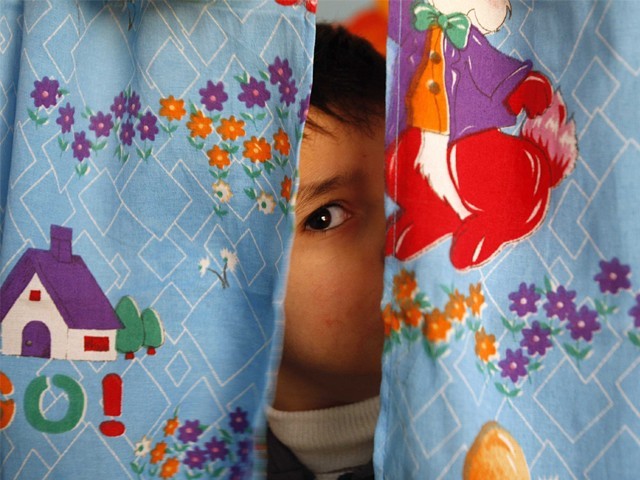
Parents have demanded that the government must make efforts to support autistic children, appoint professionals who can diagnose the disorder correctly and launch extensive awareness campaigns about it across the country.
April is the month to raise awareness of autism. Though the disorder has existed for years, many people are unaware of it, particularly in developing countries like Pakistan.
According to the Autism Society of Pakistan (ASP), there are over 400,000 children on the autism spectrum, much more than the figure denotes, not counting the adults who may have it. Autism Spectrum Disorder (ASD) is a lifelong neurological condition that affects a person's interaction with the world. An umbrella term encompassing four types reflects the developmental difficulties these people face.
Governments of various nations have taken various initiatives to facilitate the autism community. While the rest of the UK is gradually adopting the laws made for autistic individuals, the British government introduced the Autism Act in 2009 to help people on the autism spectrum integrate into the workplace and society. It has been coordinating with the National Autistic Society, UK's most significant charitable organisation, to make this process smoother and better.
The act is updated frequently to improve the quality of facilities provided to these persons. NAS, on its own, not only offers diagnostic services and treatments to the children with ASD but also to the autistic adults. It also confers residential accommodation, workplace integration, skill development and others. Pakistan, on the contrary, is under dark clouds of ignorance marked by the lack of awareness regarding this condition the society has.
To tackle these unfavourable circumstances, many local families founded their own institutes to lend a hand to this overlooked community. Autism Resource Centre Rawalpindi (ARCRWP), Zam Zam Autism Centre and Autism Point are a few examples of this.
According to ASP, the resources available nationwide to autistic people are unsatisfactory. Co-Founder ARCRWP Ghazal Nadeem said: “There is a lack of specialists and institutes working for this purpose in Pakistan. No bill has been passed to cater to the needs of these innocent kids and their families. We all [the families] are supporting each other with no support [from the concerned quarters]”.
While these NGOs cater to the needs of children, there is no solution for adults. Pakistan faces a myriad of issues concerning this area. There is no law to bound schools and workplaces for accessibility and inclusion. Then what is the way forward, one may wonder?
Parents said that a comprehensive plan with input from the individuals with ASD and their loved ones is essential. A law that binds all academic and professional organisations to ascertain inclusivity within their premises is the much needed first step from the state, besides a massive public awareness campaign to promote understanding of this neurodiversity.
Published in The Express Tribune, May 2nd, 2022.





1732883922-0/diddy-(48)1732883922-0-165x106.webp)





1732012115-0/Untitled-design-(14)1732012115-0-270x192.webp)






COMMENTS
Comments are moderated and generally will be posted if they are on-topic and not abusive.
For more information, please see our Comments FAQ